In Cleveland’s built-up, booming near-West Side neighborhoods of Tremont and Ohio City, it’s not often that a clean, undeveloped piece of land as big as 3.55 acres becomes available for development. But that’s what just happened in the Lincoln Heights section of Tremont.
And Knez Homes, one of Greater Cleveland’s largest housing developers, won that big prize.
Bo Knez, president and owner of Knez Homes, confirmed that his company will be acquiring the clean-and-green land from the Cleveland Animal Protective League (APL). The land is just south of the APL’s newly renovated and expanded facilities, 1729 Willey Ave.
Knez declined to disclose terms of the deal. The transaction was facilitated by CBRE Cleveland and First Vice President Conor Coakley who said the property transfer is now in the due diligence phase.
“It’s pretty big for us,” Knez said in a phone interview. “It’s one of the biggest pieces available on the West Side. It’s a prime piece of property. We put in our bid for it and we’re lucky to get it. Tremont is a growing area and we’re happy to have this opportunity to invest in the neighborhood.”
The Cleveland APL first solicited interest in the property about seven years ago. But the APL was in the midst of its own growth and wasn’t sure how it wanted to expand. Several site plans were considered, including at least one that showed a surface parking lot expanded south into the area that Knez ended up buying.
So how will Knez, well known locally for its single-family homes and urban townhouses, develop the site? That will be determined over the coming months as community input is gathered. Knez said he reached out yesterday to Tremont West Development Corp. Executive Director Cory Riordan.
Riordan acknowledged receiving an e-mail from NEOtrans about the property acquisition but hasn’t yet provided comment. Khalid Hawthorne, Tremont West’s director of real estate development, said a recent masterplan process, called the Lincoln Heights Master Plan is the guiding land use vision for that area.
The Lincoln Heights Master Plan was approved a little more than a year ago by affected block clubs, Tremont West’s board and the City Planning Commission. It shows the subject property developed with a small park surrounded by townhouses and a multi-family building, plus Brevier Avenue extended through to West 20th Street, thus providing more direct access to Scranton Road to the east and West 25th Street to the west.
“I want to hear more from Knez but we will always reference the Lincoln Heights plan as a starting point (for discussions),” Hawthorne said.
 |
| In its promotional materials, the seller showed how close its for-sale property is to downtown Cleveland. This northward- looking view clearly shows that proximity (Google). |
“It’s a blank slate,” Knez said of the property his firm is acquiring. “We’ll work with Tremont West and see what they want there.”
“The (Lincoln Heights) plan calls for a mixture of green space and housing,” Ward 3 Councilman Kerry McCormack said. “I think it’s a good start.”
This area, south of Ohio City’s Market District and north of Interstate 90 and the expanded Nestle USA’s L.J. Minor Plant, is experiencing significant growth after decades of neglect. It’s the new home of Front Steps’ St. Joseph Commons, a 68-unit residential facility as well as Horizon Education Center on the west side of West 25th.
The site is also within an easy walk of West 25th along which the Greater Cleveland Regional Transit Authority is proposing to create a lite-version of its bus rapid transit on Euclid Avenue, called the HealthLine. The 25Connects project would extend from Pearl and Broadview roads in Old Brooklyn to Detroit Avenue at the north end of Ohio City.
Mavrek Development of Chicago is leading a multi-phase development along and east of West 25th, starting with Treo, a five-story building with ground-floor commercial spaces topped by 160 apartments. How it and later phases mesh with Knez’s development remains to be seen.
“Knez builds a really good for-sale product, so I’m confident that, working with the community, they will come up with something really exciting,” McCormack said.
Currently, Knez’s largest development on Cleveland’s West Side is the Bailey Bridge Townhomes (previously called Fulton Row), located on a 2.1-acre former junk yard at Fulton Road and Bailey Avenue. Construction is underway on the 56-unit, $15 million development.
The APL underwent its own expansion recently. Its 28,700-square-foot animal shelter was renovated and expanded by 7,000 square feet last year for $13.5 million. Also included was a new 77-space parking lot next to the railroad tracks and west of the new addition. APL’s expansion received a certificate of occupancy from the city in November.
An e-mail seeking comment and more information from Cleveland APL President & CEO Sharon Harvey was not answered prior to publication of this article.
“APL is not confirming who the buyer(s) are at this point,” Coakley said in an e-mail.
APL’s expansion westward rather than southward into the land Knez is acquiring was made possible by a land swap several years ago between the APL and Sustainable Community Associates‘ to facilitate SCA’s $26 million mixed-use development, The Lincoln. APL transferred to an affiliate of SCA two parcels on Willey Avenue in exchange for a Cleveland Land Bank parcel next to APL’s existing property.
According to historical records, the property Knez will be acquiring has never been developed. How it avoided development during Cleveland’s industrial boom in the late 1800s and early 1900s is an interesting story. According to Sanborn Fire Insurance Maps from the 1800s, the land was actually water — a pond. It appears the pond was man-made, resulting from a dammed-up swale.
That pond was just uphill from the Beck Provision Co., a hog slaughterhouse located from 1882-1914 on Brevier at the railroad tracks — back when Brevier turned northward and went under the tracks. Beck Provision prepared and sold sausage, bacon and cooked ham at the original Central Market downtown.
The pond appeared to provide ice for meat storage plus water for hogs and for cleaning the slaughterhouse. Waste could drain into Walworth Run, one of Cleveland’s earliest industrial lowlands beyond the Cuyahoga River’s Flats. From the pond and emptying into the slaughterhouse was a sluice –a channel with a sliding gate for controlling the flow of water, Sanborn Maps show.
A 1939 U.S. Geological Survey topographical map shows the pond was already drained by then. Overhead views from HistoricAerials.com show the pond was partially filled in by 1952 and more thoroughly filled in by 1962. The Cleveland APL, a no-kill shelter, is located on the site of the long-gone slaughterhouse.
END

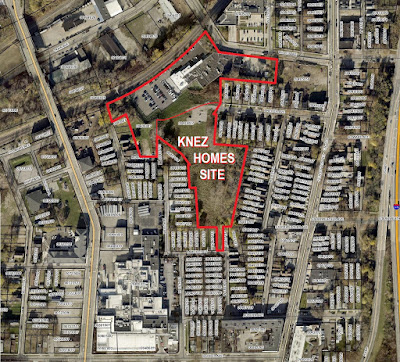



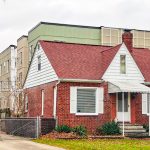



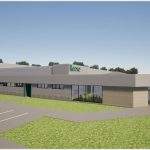
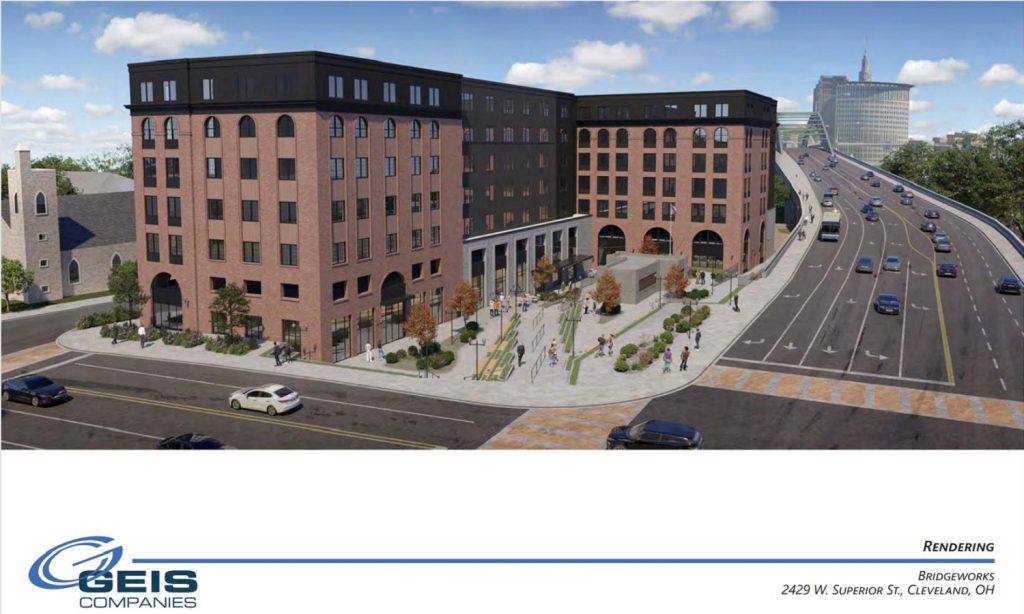
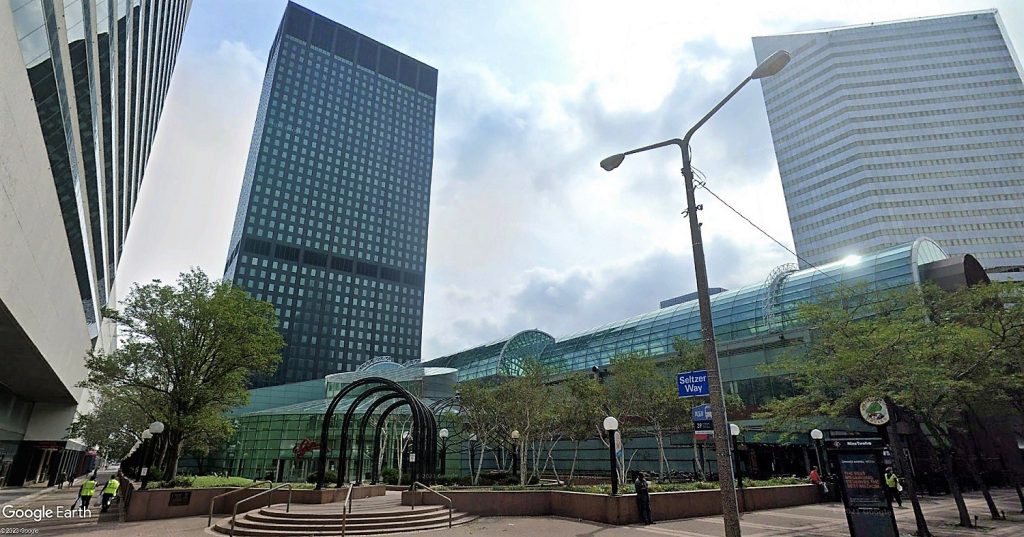
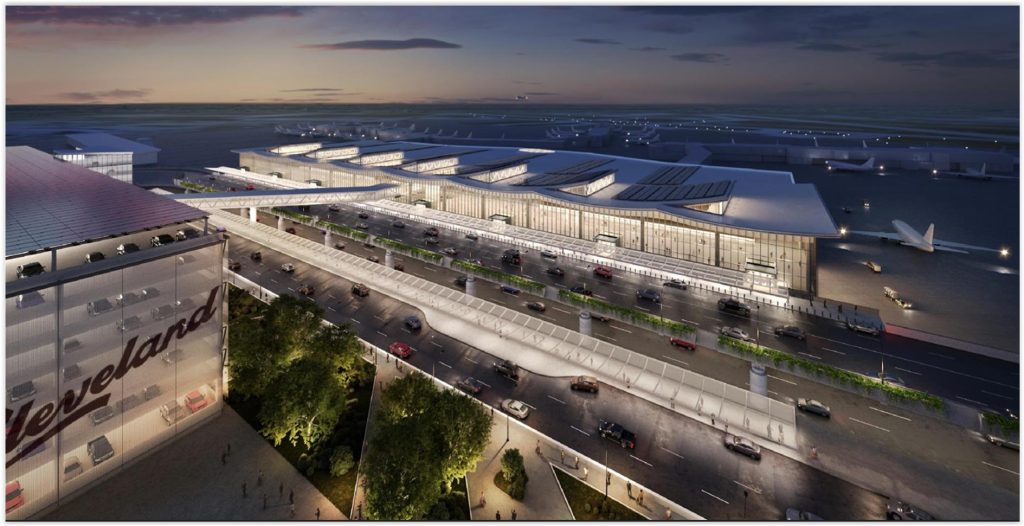
Comments are closed.